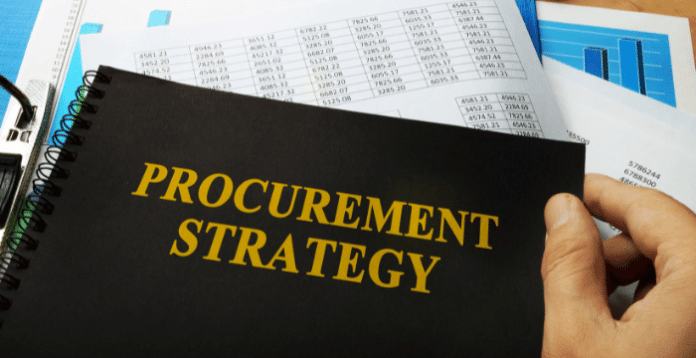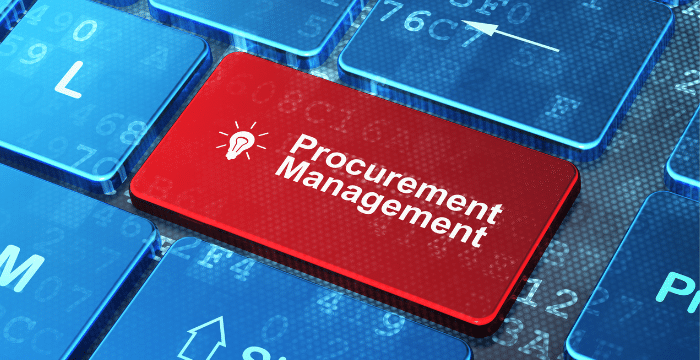Procurement, the process of acquiring goods, services, and works from external sources, is a critical function for businesses, government agencies, and other organizations. Procurement professionals are responsible for identifying suppliers, negotiating contracts, and ensuring timely delivery of high-quality products and services. The success of an organization often depends on its ability to procure goods and procurement strategy.
Effective procurement requires a thorough understanding of the organization’s needs, the marketplace, and the suppliers’ capabilities. Procurement must also have excellent negotiation skills and a deep understanding of legal and regulatory requirements. A well-managed procurement process can provide numerous benefits, including cost savings, risk reduction, and improved supplier relationships.
Table of Content:
Table of Content
What is Procurement Strategy?
A procurement strategy is a systematic plan that outlines how an organization will acquire the goods, services, and works it needs to operate. It is an essential component of an organization’s overall business strategy and helps to ensure that the procurement process aligns with the organization’s goals and objectives. The procurement strategy includes objectives and tactics for identifying suppliers and ensuring the timely delivery of goods and services.
Also read: 7 Steps of an Effective Procurement Process and How to Improve it
How to Manage Procurement
Managing procurement effectively requires a systematic approach that includes several key steps. Firstly, organizations must identify their procurement needs and develop a procurement plan that aligns with their overall business strategy. This plan should outline the procurement process, including supplier identification, contract negotiation, and delivery logistics.
Secondly, organizations should establish clear procurement policies and procedures that comply with legal and regulatory requirements. These policies should define roles and responsibilities, procurement thresholds, and approval processes. Thirdly, organizations should implement appropriate procurement technology and tools that enable efficient and effective procurement management.
Lastly, organizations should measure and evaluate their procurement performance regularly to identify areas for improvement and ensure compliance with procurement policies and procedures. By following these steps, organizations can effectively manage procurement, reduce costs, improve supplier relationships, and minimize purchase price variance.
The Best Procurement Strategies
A procurement strategy is essential to ensure the procurement process aligns with the organization’s goals and objectives. The best procurement strategies can help organizations reduce costs, minimize risk, and improve supplier relationships. So, here are the best procurement strategies:
Integrate and streamline the procurement chain
Procurement professionals must work closely with suppliers, internal stakeholders, and other third-party providers to ensure the procurement process is efficient and streamlined. By integrating the procurement chain, organizations can reduce procurement lead times, improve supplier relationships, and ensure timely delivery of goods and services.
Implement supplier risk management
Supplier risk management involves monitoring and evaluating supplier performance regularly to identify potential risks and implement appropriate risk mitigation strategies. By implementing supplier risk management, organizations can reduce the likelihood of supply chain disruptions and minimize the impact of risk.
Consolidate and centralize supplier data
Centralizing supplier data can help procurement professionals manage supplier relationships more effectively and improve supplier communication. Ultimately, consolidating and centralizing supplier data is critical to developing procurement strategies that enable organizations to operate efficiently, reduce procurement costs, and achieve their business objectives.
Utilize predictive analytics
Utilizing predictive analytics is an emerging trend in procurement strategies. By using procurement analytics, procurement professionals can anticipate supply chain disruptions, optimize inventory levels, and negotiate better pricing with suppliers. Predictive analytics can also enable procurement professionals to identify new suppliers and evaluate supplier performance more effectively.
Foster a culture of innovation and collaboration
Procurement professionals must work collaboratively with internal stakeholders and suppliers to identify new innovation and process improvement opportunities. Therefore, by fostering a culture of innovation and collaboration, organizations can improve supplier relationships, enhance customer satisfaction, and drive business growth.
Optimize procurement with management software
Also read: The Benefits of Procurement Management for Your Company
Plan Procurement Strategy with Procurement System
Planning a procurement strategy with a procurement system is crucial to procurement management. This is because procurement systems can help organizations to develop and implement effective procurement strategies by providing real-time data, automating procurement processes, and enhancing collaboration with suppliers and internal stakeholders.
Procurement management systems can provide valuable insights into supplier trends and emerging risks. Hence, this enables procurement professionals to make informed decisions. Ultimately, planning a procurement strategy with a procurement system is critical to developing procurement strategies.
Conclusion
In conclusion, procurement is essential for organizations to ensure they have the necessary goods and services to operate efficiently. Effective procurement strategies involve integrating and streamlining the procurement chain, implementing supplier risk management, and consolidating and centralizing supplier data.
Implementing a procurement strategy with a procurement system is crucial for organizations to achieve procurement efficiency. One of the best procurement systems available out there is HashMicro’s Procurement System. HashMicro’s procurement system can help organizations automate procurement processes and generate procurement reports.
Grab the chance to get a grant of up to 50% to optimize your business! Try the free demo today!






































